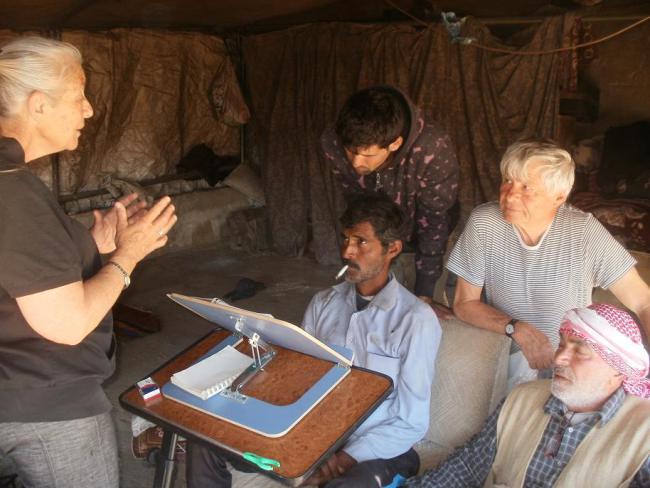9.7.14
To our friends,
I have already been sitting for an hour, staring at the empty word page and not finding words that would describe the pain – the pain of those of us who see straight. The pain of the sober, of those who knew that the bottled demon grows and grows, and when it is let out, it will be unbearable. And it has been let out.
Last night I spoke with my good friend from Gaza. Over the phone he heard the din blast of the Gazan rockets that exploded near us, in an open field. At my end, I heard the Israeli bombing from the air near his home. We talked. He said: “You know what my dreamiest dream is? My dream is that still in my own lifetime I will be able to have coffee with you and your family (whom he knows personally from other times) in my kitchen. Here, in Gaza. And then we will go to the beach and sit and count waves. As we did in 1999. Remember?” “I remember” I said, and could no longer speak for the tears that were choking me, tears of simple love, of human longing for contact that is impossible to fulfill, only in the mind. I recalled another talk with Ali of the South Hebron Hills, who also called me last night to ask how I was doing, because of the rockets. In our talk about the general situation, Ali said: “What do I want, after all? To get up in the morning and smell the earth that I plow, and reap in the spring, and bring bread to my children, and that you would be with us to taste that freshly baked bread. I know you love it. And I also waited for an entry permit into Israel which we get for the Ramadan because I wanted so much to visit your home. But now it’s closure and no permits are issued. I am so angry about this”. This is what Ali said, and I said “I feel as you do”.
When my Gazan friend spoke with me, he added: “Let’s write something together?” “To whom?” I asked. “To the world”, he answered. I reminded him that 14 years ago, in the crisis of fall 2000, I wrote something together with our common friend from Gaza (see below), something “to the world”. I told him that it very precisely reflects the situation, even if merely because something from 14 years ago is still relevant today. I sent it to him, and he said he would hand it out to his students and to others.
I asked him to write something himself, and I would also distribute it.
I’ll call him again today…
More such phone calls are coming in and going out to our friends in Gaza and the West Bank.
And as a friend from Salem, near Nablus, said to me today: “For people who do not have such ties as we do, it is easier to let hatred into their hearts. But in my heart there is no room for hatred. It is filled with love.” Thank you, dear friend, for these words which in Hebrew are a bit imperfect but whose truth is so real…
I have nothing more to say. The description of the present situation in various places, the different political analyses, the interpretations can all be obtained from various media.
Erella, on behalf of the Villages Group.
- – – – – –
Here we go again.
Once more the blood counter ticks.
We’ve already been in this scenario. And because we know the scenario, we already know what will happen in the next episodes.
Now there are fears. One fear is of the monster on the other side – the victim’s fear, and of the monster on the side of the perpetrator: the monster of the weak, and the monster of the strong. The monster of those who do not yet have a state, and the monster of those who do.
Another fear is that of seeing the home-monster, and of saying it out loud.
The home monster is especially dangerous for it magnifies and activates that of the other side.
The next episode is more bloodshed, a lot of it. For these monsters are ravenous. Fear turns into hatred, pain becomes a weapon. And the blood-counter? It measures the blood.
And the episode after that is inevitable as well – hatred will bear more fear and the monsters will manage death.
The leaders, too, are afraid, especially of the home-monster, for it is the one that might topple their rule, so they stop seeing it. They see only its shadow, falling on the neighbor’s wall.
We, Palestinians and Israelis, Arabs and Jews, the secular and the religious, call upon every person who is brave enough to encounter their own fear and pain, instead of acting them out. This enables us not only to be right, but especially to be wise, and attentive to the fear and pain of the other. Upon call upon all of these people to strengthen each other from within, and upon those on the other side, and the leaders, to implement agreements that have already been reached, and continue seeking a solution to all that is still a controversy.
And to constantly remember – when the monsters emerge and get to work, the wound can no longer be located…



















